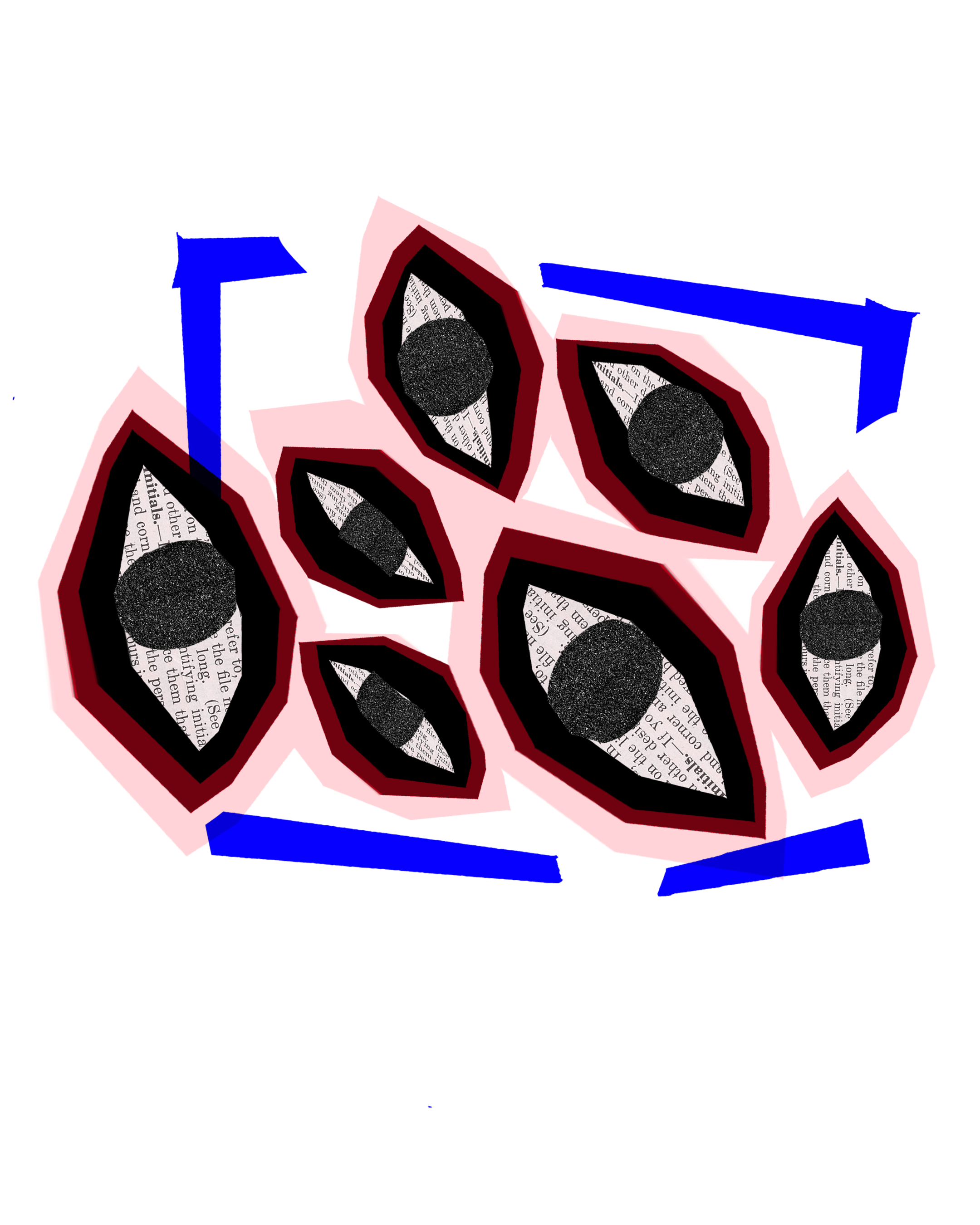Looking as Discourse: On Witnessing
Image by Angelo Maneage
The theme of the 2022 Cleveland Humanities Festival is “Discourse.” Zach Savich, a Cleveland Review of Books board member and associate professor at the Cleveland Institute of Art, asked a group of artists, writers, and scholars from Cleveland and beyond to address the topic, “How is looking a form of discourse? Or: how does looking become discourse?” Their responses explore some of the ways in which private and shared experiences of vision contribute to culture, conversation, identity, and collective exchange.
Where I’m from, being a witness isn’t always safe or easy. You can’t constantly be the one who’s just observing. In a room full of people, you can’t stay quiet for too long—you gotta chime in at some point. Trust me. I’ve been called weird, rude, shy, and a host of other things because of my observant nature. Some people could care less about my “I’m a writer. I like to observe.”
There are times when people even mistake the quiet and observant for weak or distrustful. I remember when a friend of mine asked one of my students if she was the feds because she sat in our two-hour conversation without contributing a word. Her quiet and choice to witness and listen seemed to make him uncomfortable. But what if my student simply wanted to listen, to learn, to take it all in? Couldn’t her silence be a sign of respect or her way of showing gratitude for the stories being shared?
And on the flip side, I can understand my friend’s discomfort. I mean, we were talking about some deep shit—growing up as 80s babies. We shared our personal childhood stories about drugs, violence, family addictions and everything else that came with being Black kids from the inner city. My student witnessed two grown men shed tears in that conversation and never chimed in once. I’m guessing my friend wanted her to share what it was like for her growing up as a 90s baby or maybe he wanted her to simply share something—anything—for the sake of exchange.
Witnessing can also come with unwanted responsibilities. Take for instance the following scenario: I saw a little Black boy in Heinen’s Grocery Store. He had to be about three. He was sitting alone in the coffee aisle in one of those toy cars that attach to the front of a shopping cart. When I approached him he was reaching for a box of K-cups. He couldn’t succeed because the cart wasn’t close enough and his arms weren’t long enough. Once he noticed me, he called for his father. “Daddy,” he said. “Where’s your father?” I asked him. The little boy pointed everywhere. My mind went here: I alert security. Security makes a big scene. The little boy’s parent shows back up and now my witnessing causes the Black parent to get in trouble, or even worse, be humiliated by Shaker Heights police.
And I hate to even get started on what it means to be Black and a witness to police brutality. I’ll be honest—it’s hard for me to even write about. When I think about Tajai Rice, Tamir Rice’s sister, my stomach knots up. I hate to even think about what would happen to my mental health if I witnessed my own brother dead on the ground because of a coward ass cop. And then there’s Darnella Frazier, the young woman who filmed George Floyd’s murder when he was murdered by a Minneapolis police officer. And then there’s Diamond Reynolds, the girlfriend of Philando Castile who filmed his murder when he was killed by a Minnesota police officer. My heart sinks for Tajai, Darnella and Diamond. Their witnessing is the kind that shatters and haunts and disrupts sleep.
Nevertheless, witnessing plays a huge role in my practice as a writer. My observant nature is who I am and I’ve learned to even value the silence that comes with witnessing. I’ve found that when I am silent and looking, I am also learning. Sometimes I discover a new word or I notice something I hadn’t noticed before. In “Kinsman”, a poem I wrote the day after a baby was killed by a stray bullet, I was concerned with watching. I wanted to capture the things I saw while driving down Kinsman Road. I silenced my phone. I turned off the radio. The street felt eerie. I wanted to be on alert because watching was sort of my way of remembering and honoring Aavielle Wakefield, the deceased baby. I never knew a poem would come out of my looking, but the images I saw (“the trash,” “the teddy bear memorials” and the “raggedy strollers”) were too vivid and too rich to ignore.
My writing process begins with witnessing—it’s how I learn about other people’s lived experience. I wouldn’t be 120 pages into my new young adult novel if it wasn’t for my deep listening and watching whenever I’m around young people. My main character’s voice wouldn’t be as rich if I neglected to listen to the ways Black kids recycle and remix our old slang. And I have to be a careful listener and observer to get things right because this is how the truth is produced and truth is one of the biggest things I’m after in my writing. So. I can’t be worried about people who see my silence as unenthusiasm or as rude or even as a lack of confidence. My writing would suffer if I didn’t pay attention and if I didn’t see the value of listening and observing, and I’m not willing to take that risk.

